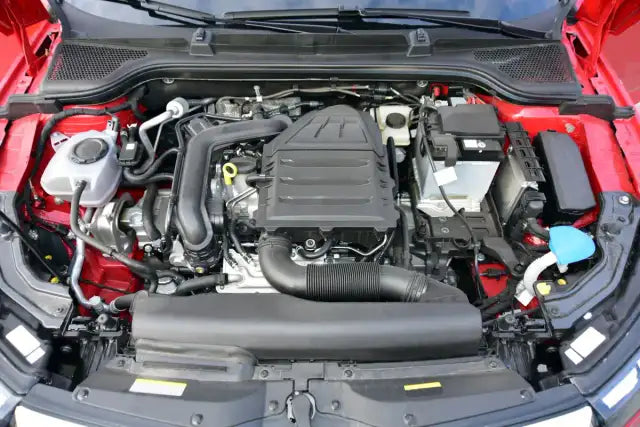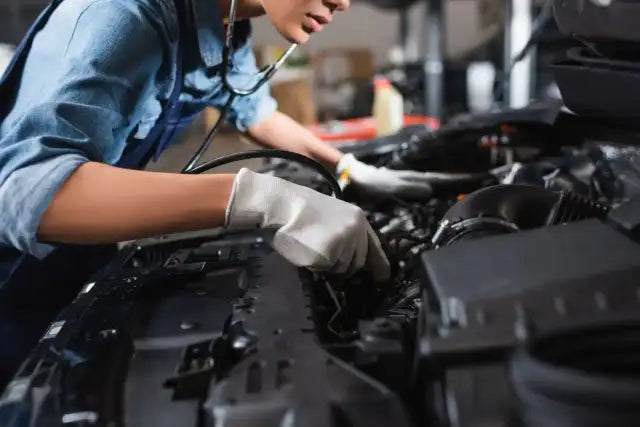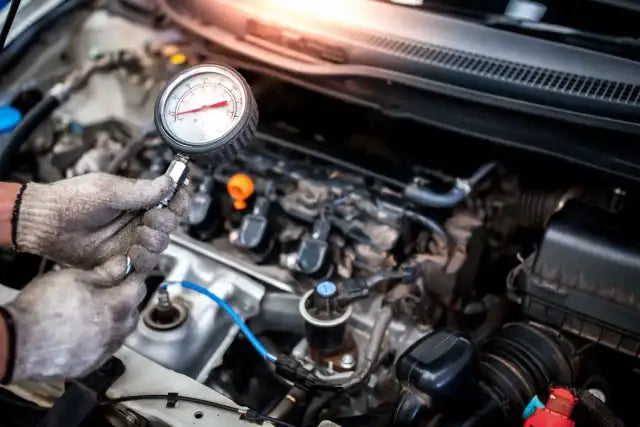You get into your car in the morning, turn the key, the engine starts right away, and you're ready to hit the road. But what if your journey doesn't start as smoothly as planned? What if your car jerks on a cold engine, making every drive a struggle? In this blog post, I will explore this issue, explain its causes, and suggest simple steps to resolve it. Read on to find out more.
Jerking on a cold engine – what is it and where does it come from?
Jerking on a cold engine is a fairly common phenomenon that many drivers may experience. However, despite its frequent occurrence, it can be a frustrating and worrying issue, especially for those unfamiliar with car mechanics. So, what exactly is it? Simply put, it’s a situation that typically occurs when driving with a cold engine. The car starts jerking, particularly during acceleration. This jerking can manifest as sudden surges or slowdowns that are beyond the driver’s control. This means that even with steady pressure on the gas pedal, the vehicle’s speed may suddenly increase or decrease.
This situation can occur in gasoline, diesel, hybrid, and even electric vehicles. Jerking on a cold engine is usually the result of one or more technical issues, which may be related to the fuel system, ignition system, exhaust system, or even the vehicle’s control software.
Factors contributing to cold engine jerking
Understanding the causes behind jerking on a cold engine can help diagnose and fix the problem. What are the most common reasons for jerking in a cold engine?
- Faulty fuel system – For example, a malfunctioning fuel injector may cause the engine to receive an inadequate amount of fuel, leading to jerking.
- Ignition system issues – A damaged spark plug, for instance, can lead to ignition problems, which in turn cause jerking.
- Exhaust system problems – Damage to the exhaust system, such as a leaking exhaust manifold, can result in uneven exhaust flow, which can also lead to jerking.
- Software errors – In modern vehicles, the software controlling the engine and other systems is highly complex. If it contains bugs or is outdated, it may cause improper engine operation, which leads to jerking.
Symptoms and diagnosis of the jerking problem
When you notice that your car jerks on a cold engine, there are a few symptoms to look out for to better understand the problem. Here are some of them:
- Jerking only occurs during acceleration – In this case, the issue is most likely related to the fuel or ignition system. It could be due to insufficient fuel supply to the engine or ignition problems.
- Jerking also occurs while driving at a steady speed – The issue may lie within the exhaust system or the vehicle’s control software.
- Jerking is worst during the first few minutes of driving – This is a classic sign of fuel system issues. It may be caused by a faulty fuel injector, which is not delivering the right amount of fuel to the engine.
Of course, the best way to accurately diagnose the problem is to consult an experienced mechanic. A mechanic can perform a series of diagnostic tests to precisely identify the issue and offer an appropriate solution.

How to prevent jerking on a cold engine?
There are a few ways to fix the problem of jerking on a cold engine:
- In some cases, regular cleaning of the fuel system can help prevent jerking issues.
- If the problem is with the ignition system, you may need to replace spark plugs or ignition wires.
- If the issue is with the exhaust system, replacing the exhaust manifold might be the solution.
- Updating the software – In some cases, the manufacturer may offer a free software update that can resolve the issue.
Cleaning – the first step to preventing jerking on a cold and warm engine
The first step in protecting your vehicle is regularly cleaning its systems. Maintaining the cleanliness of car mechanisms by using the right cleaning and conditioning agents is key to ensuring their long-term efficiency. Regular use of such products can keep vehicle components in top condition and prevent various problems. However, it's important to remember one thing: regularity. If you want to properly care for your car, it's worth checking out TEC 2000's range. I personally use their products regularly, and I can confidently recommend them. These products help protect the vehicle's key systems from contamination buildup and more. Below are some details on the products I and thousands of mechanics and drivers in our country use:
- Engine Flush: An innovative engine flush that helps maintain the cleanliness of key components like lifters, pistons, and oil galleries.
- Diesel Injector Cleaner: A specialist product for cleaning diesel injectors.
- Diesel System Cleaner: A fuel additive for diesel engines that improves fuel lubrication while also cleaning and maintaining the engine and fuel system.
- Oil Booster: An oil additive that reduces oil consumption, prevents oxidation, and increases lubrication efficiency, especially when the engine is cold.
- Fuel System Cleaner: A fuel additive that helps remove water from the fuel system, thereby increasing the lifespan of injectors.
- Fuel Injector Cleaner: A product for cleaning gasoline injectors, which can be used as a last resort before having to disassemble the injectors.
- Induction Cleaner: A cleaner for the intake system that effectively removes contaminants from components such as the turbocharger, intake manifold, control valves, and throttle body.
Minimizing cold engine jerking: driving tips
In conclusion, there are a few things you can do as a driver to prevent jerking on a cold engine. Here are some tips:
- Try to avoid accelerating too suddenly, especially when the engine is cold. Sudden acceleration can lead to abrupt changes in fuel delivery, which can cause jerking.
- Regularly service your car and pay attention to any changes in its behavior. Routine inspections can help detect potential problems before they become serious.
- If your car jerks on cold engine when running on gas, don't ignore the issue. The sooner you diagnose and fix the problem, the less likely it is to cause major damage to your vehicle.
Remember, while cold engine jerking can be frustrating, it’s usually a problem that can be easily fixed. It’s important to approach the issue with an open mind and be willing to consult with an experienced mechanic to find the best possible solution. Your safety and driving comfort deserve full attention. Whether you're a car expert or not, it's always a good idea to consult with a professional who can help you understand and effectively solve the problem.




Leave a comment
This site is protected by hCaptcha and the hCaptcha Privacy Policy and Terms of Service apply.